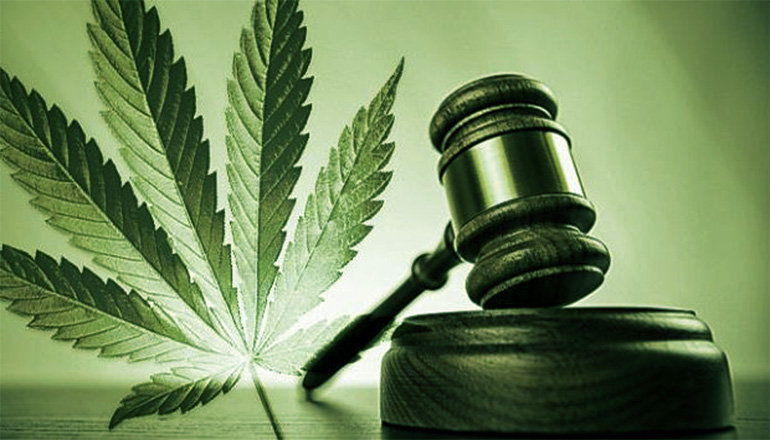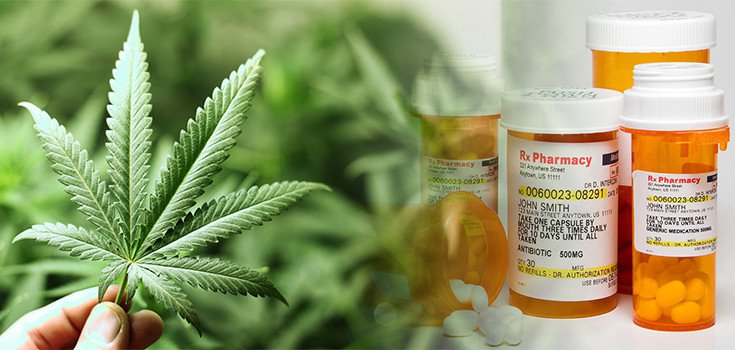 The Controlled Substances Act of 1970 placed marijuana in the most restrictive use category, Schedule I, deeming it a drug with no medicinal value and high potential for abuse. To do clinical research with marijuana, you need a DEA license, and you need to get your study approved by the FDA. When it comes to actually obtaining research-grade marijuana, though, you have to go through the National Institute on Drug Abuse, a process that has proved problematic for some researchers determined to study the potential medical benefits of marijuana in Florida and others states around the US.
Anecdotal evidence suggests that marijuana can reduce chronic pain, reduce muscle spasms in patients with multiple sclerosis and perhaps even help treat symptoms of PTSD. The small amount of clinical research out there also supports the idea that marijuana could be an effective treatment for pain. A 2007 study found that smoking cannabis reduced chronic pain in HIV-positive patients by 34 percent. Results from a study in 2010 further supported the theory that it can [reduce the intensity of neuropathic chronic pain- pain caused by damage to the nervous system–marijuana recommended by Doctors in Florida help patients find the relief they’ve been yearning for for years.
The Controlled Substances Act of 1970 placed marijuana in the most restrictive use category, Schedule I, deeming it a drug with no medicinal value and high potential for abuse. To do clinical research with marijuana, you need a DEA license, and you need to get your study approved by the FDA. When it comes to actually obtaining research-grade marijuana, though, you have to go through the National Institute on Drug Abuse, a process that has proved problematic for some researchers determined to study the potential medical benefits of marijuana in Florida and others states around the US.
Anecdotal evidence suggests that marijuana can reduce chronic pain, reduce muscle spasms in patients with multiple sclerosis and perhaps even help treat symptoms of PTSD. The small amount of clinical research out there also supports the idea that marijuana could be an effective treatment for pain. A 2007 study found that smoking cannabis reduced chronic pain in HIV-positive patients by 34 percent. Results from a study in 2010 further supported the theory that it can [reduce the intensity of neuropathic chronic pain- pain caused by damage to the nervous system–marijuana recommended by Doctors in Florida help patients find the relief they’ve been yearning for for years. If you’re going to run a trial to show that marijuana has positive effects, the NIDA essentially is not going to allow it.
Both the American Medical Association and the American College of Physicians have called for more research into the therapeutic uses of marijuana and for the U.S. government to reconsider its classification as a Schedule I substance.
Many universities grow and harvests cannabis for studies funded by the National Institute on Drug Abuse, yet because NIDA’s mandated mission is to research the harmful effects of controlled substances and stop drug abuse, the institute isn’t interested in helping establish marijuana as a medicine.
The federal government’s position on marijuana, according to a document featured prominently on the DEA’s homepage, is that:
If you’re going to run a trial to show that marijuana has positive effects, the NIDA essentially is not going to allow it.
Both the American Medical Association and the American College of Physicians have called for more research into the therapeutic uses of marijuana and for the U.S. government to reconsider its classification as a Schedule I substance.
Many universities grow and harvests cannabis for studies funded by the National Institute on Drug Abuse, yet because NIDA’s mandated mission is to research the harmful effects of controlled substances and stop drug abuse, the institute isn’t interested in helping establish marijuana as a medicine.
The federal government’s position on marijuana, according to a document featured prominently on the DEA’s homepage, is that: The clear weight of the currently available evidence supports [Schedule I] classification, including evidence that smoked marijuana has a high potential for abuse, has no accepted medicinal value in treatment in the United States, and evidence that there is a general lack of accepted safety for its use even under medical supervision says Doctors in Miami Florida… Specifically, smoked marijuana has not withstood the rigors of science–it is not medicine, and it is not safe.
Burge tells a different story. “The United States government has gone to great lengths to prevent [medical] research on whole-plant marijuana,” he says, though research into isolated components of the plant has gone on.
“We have an FDA-approved protocol, but the only way to actually get marijuana for the study, the only federally approved source. “NIDA refused to sell us the marijuana for this study.”
There’s a lot of investment in marijuana remaining illegal. According to NIDA, the agency can provide research-grade marijuana to projects that have received funding from the National Institutes of Health (NIH), or to a non NIH-funded project that has an approved Investigative New Drug application on file with the FDA; has proper DEA registration; and has been approved as scientifically valid by a Health and Human Services scientific review panel.
The clear weight of the currently available evidence supports [Schedule I] classification, including evidence that smoked marijuana has a high potential for abuse, has no accepted medicinal value in treatment in the United States, and evidence that there is a general lack of accepted safety for its use even under medical supervision says Doctors in Miami Florida… Specifically, smoked marijuana has not withstood the rigors of science–it is not medicine, and it is not safe.
Burge tells a different story. “The United States government has gone to great lengths to prevent [medical] research on whole-plant marijuana,” he says, though research into isolated components of the plant has gone on.
“We have an FDA-approved protocol, but the only way to actually get marijuana for the study, the only federally approved source. “NIDA refused to sell us the marijuana for this study.”
There’s a lot of investment in marijuana remaining illegal. According to NIDA, the agency can provide research-grade marijuana to projects that have received funding from the National Institutes of Health (NIH), or to a non NIH-funded project that has an approved Investigative New Drug application on file with the FDA; has proper DEA registration; and has been approved as scientifically valid by a Health and Human Services scientific review panel.
The legal cannabis industry is posting some insane job-growth numbers. The total number of job postings for the cannabis industry increased by almost a 500% in 2017, as a host of states — including Florida — legalized the plant for adult consumption. That’s up from just 18% growth in 2016, according to a recent study, an online job platform. Nine states and Washington D.C. have legalized cannabis, though it’s considered an illegal, Schedule I drug at the federal level. Because of that trend, there are now more cannabis workers than dental hygienists in the US, according to Marijuana Business Daily, a financial-news publication focusing on the cannabis industry. The higher end of their estimate range suggests there were 230,000 people employed in the US legal cannabis industry in 2017, whereas there were two hundred thousand dental hygienists, according to the US Bureau of Labor Statistics. 
If you have one or more of the state approved conditions and the condition is chronic in nature, and/or is debilitating, call us today to set up an appointment! We can assist you in obtaining your state issued Medical Marijuana Card. Our physicians are DEA certified and state approved to help you qualify for an Marijuana License. Once our doctors approve you for medical marijuana, our onsite notary will assist you in completing all state documentation necessary to officially become a Florida medical marijuana patient. We not only provide expert education on becoming an medical marijuana patient, but we also provide direction in finding a dispensary or caregiver that will best suit your needs. Contact our friendly staff today to learn what steps you now need to take to begin your medical marijuana treatment today.
Not all physicians can, or are willing to recommend medical cannabis for their patients. Our registration company has worked to find DEA certified physicians with the background knowledge, and expertise needed to perform Medical Marijuana Recommendations. The state has strict criteria for doctors who are willing to write Medical Marijuana Recommendations for patients. Your doctor must be an MD or DO, and DEA registered with no license restrictions or conditions. We pride ourselves in finding physicians who not only meet the state standards, but go above and beyond to provide unmatched follow-up care and medical resources to all of our patients. We want to provide you the best care possible and our doctors can help get your life back to where you want it to be. Make this process easy and let us take care of all your Medical Marijuana needs. When you see our doctor you must have a qualifying condition in order to receive a Medical Marijuana Recommendation. Medical documentation is helpful but not necessary if you are over the age of 21. The condition must be severe and/or debilitating in nature or else the doctor cannot recommend Medical Marijuana. The physician will need to know certain things about your condition, how long it has been present? How was it diagnosed? How does is affect your daily life? What brought your condition about? Please have either medical records that document the answer to these questions present at your appointment, or know your past medical & alcohol history so you may give a concise and complete overview of your medical history. It is important that you have been seen by a medical professional for your condition at some point in your past. 
